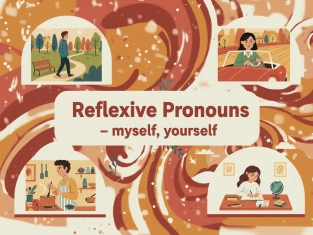Modal verbs of Permission
Table of Contents
Exercises
Explanation
1. Can – informal permission
Can is the most common modal verb for asking permission in everyday conversations. It sounds friendly and casual.
Examples:
-
Can I sit here?
-
Can we use your printer?
2. Could – more polite than “can”
Could is a softer, more polite form. We use it when we want to be more respectful or when speaking to someone we don’t know well.
Examples:
-
Could I borrow your notebook?
-
Could we start a bit earlier today?
3. May – formal permission
May is used in formal or professional situations. It sounds very polite and official.
Examples:
-
May I speak to the manager?
-
May we enter the conference room?
4. Might – very polite, careful request
Might is a rare and very polite way to ask permission. It appears in very formal or old-fashioned contexts.
Examples:
-
Might I ask a quick question?
-
Might we join your table?
5. Shall I… – offering help
Shall I is not used to ask for permission. Instead, it is used to offer to do something for someone.
Examples:
-
Shall I turn the lights on?
-
Shall I make some tea?
Useful Phrases for Asking Permission
These phrases are helpful in polite or professional situations:
-
Would you mind if I…?
Would you mind if I used your charger? -
Do you mind if I…?
Do you mind if I open the door? -
Is it okay if I…?
Is it okay if I leave a bit earlier?
How to Give Permission
Instead of just saying yes, we can sound more natural with these phrases:
-
Sure, go ahead!
-
Yes, of course.
-
No problem.
-
Feel free.
-
That’s fine with me.
Example:
— Can I take one of these brochures?
— Of course, go ahead.
How to Refuse Permission Politely
A direct no can sound too strong, so we use softer phrases:
-
I’m afraid not.
-
Sorry, but that’s not possible.
-
I’d rather you didn’t.
-
Unfortunately, no.
-
That might not be a good idea.
Example:
— Is it okay if I bring food inside?
— I’m afraid not; it’s not allowed.

